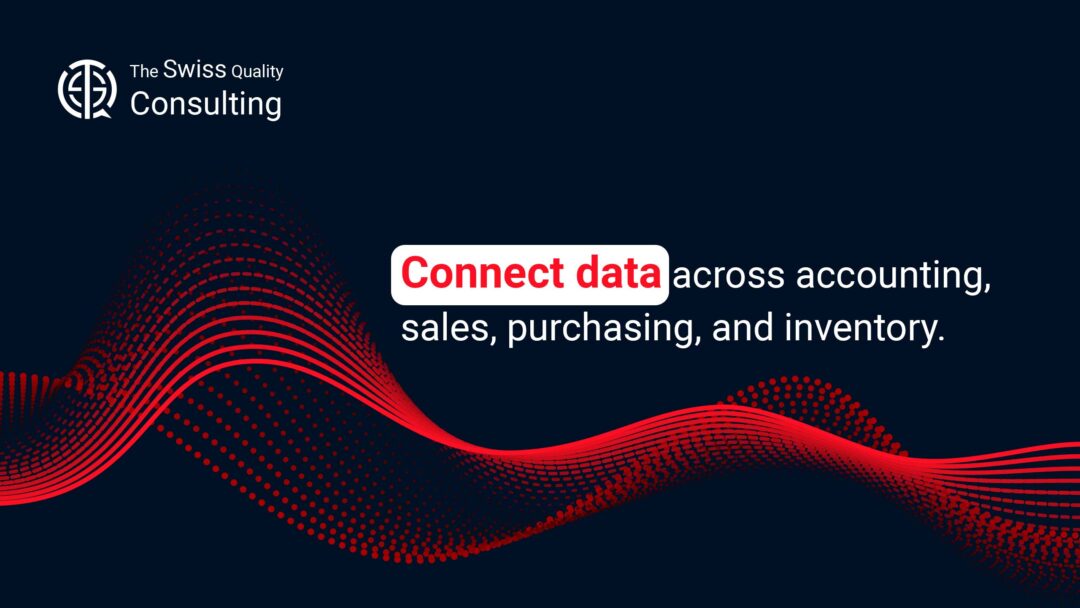The Power of Unified Information lies in the ability to seamlessly connect data across accounting, sales, purchasing, and inventory
In today’s rapidly evolving business landscape, the ability to harness the full potential of your data is paramount. Business executives, mid-level managers, and entrepreneurs are increasingly recognizing the importance of connecting data across accounting, sales, purchasing, and inventory to drive success. This article explores the significance of integrated data management and how it can propel your business to new heights.
Navigating Change with Effective Data Integration
Change management plays a pivotal role when implementing integrated data management systems (IDMS). Transitioning from disparate data silos to a unified platform can be a significant shift for any organization. To ensure a smooth and successful transition, it’s crucial to have a well-defined change management strategy in place.
This comprehensive strategy should encompass a thorough assessment of the organization’s current data management practices, identifying the challenges and inefficiencies that arise from siloed data. A detailed data governance assessment can be instrumental in this process, providing insights into the organization’s data landscape and paving the way for a targeted approach to change.
Once the need for change has been established, the next step is to craft a meticulous change management plan. This plan should outline the specific steps involved in implementing the IDMS, including the technical aspects of the system integration, the data migration process, and the data governance framework. Additionally, the plan should detail the communication strategies that will be employed to inform and engage stakeholders throughout the transformation journey.
Gaining buy-in from key stakeholders is paramount to the success of any change management initiative. This includes securing the support of senior management, IT staff, and end-users. It’s crucial to effectively communicate the benefits of the IDMS to each group, addressing any concerns or questions they may have. By fostering a sense of shared understanding and purpose, organizations can minimize resistance and encourage active participation in the change process.
Providing comprehensive training and support is essential to ensure that employees are equipped to navigate the new IDMS effectively. This includes training on the new data governance policies and procedures, as well as hands-on training on the system’s functionalities. Moreover, ongoing support should be readily available to address any questions or challenges that employees may encounter as they adapt to the new system.
Continuous monitoring and evaluation of the change management initiative are crucial to assess its effectiveness and identify areas for improvement. By tracking progress, measuring outcomes, and gathering feedback, organizations can make adjustments to the plan as needed, ensuring that the change process remains on track and achieves its desired objectives.
In conclusion, implementing an IDMS is a complex endeavor that demands careful planning and execution. However, with a well-defined change management strategy in place, organizations can significantly increase their chances of success. By effectively managing the change process, organizations can empower their employees to adopt the new system with confidence, leading to improved data quality, enhanced efficiency, and better decision-making capabilities.
ange Leadership – Paving the Way
Change starts at the top. Business leaders must champion the cause of integrated data management, emphasizing the benefits it brings to various aspects of the business. Their ability to communicate the rationale behind this change and provide unwavering support is essential to winning over the organization.
Elevating Performance with Executive Coaching
Effective data integration requires more than just technology; it demands skilled personnel who can make the most of the unified data. This is where executive coaching services come into play.
Effective Communication – Maximizing Impact
Clear and effective communication is crucial throughout the integration process. Executive coaches can help leaders refine their communication skills, ensuring that the goals and advantages of integrated data management are conveyed effectively to all stakeholders.
The Synergy of Integrated Data
Now, let’s relate this to the quote: “Connect data across accounting, sales, purchasing, and inventory.” Integrated data management allows organizations to centralize and streamline their data across various departments. This centralization provides a holistic view of the business, enabling data-driven decision-making.
Streamlined Operations for Efficiency
With data integration, organizations can eliminate duplicate data entry and reduce errors. This leads to increased efficiency in daily operations, as employees no longer need to navigate through multiple systems to access critical information.
Realizing Business Success
Integrated data management is not just about improving efficiency; it’s about achieving business success. The ability to connect data across different facets of the business enables organizations to identify opportunities, optimize resources, and respond swiftly to market changes.
Staying Informed with Business News Updates
Staying informed about industry trends and market developments is essential for making informed decisions regarding data integration. Regularly accessing business news updates can provide insights that guide strategic decisions and help organizations remain competitive.
Conclusion
In conclusion, the path to business success lies in integrated data management. However, achieving success in this endeavor requires effective change management, leadership, and the support of executive coaching services. The synergy of data integration empowers organizations to centralize their focus, streamline operations, and make data-driven decisions that propel them ahead in a competitive business landscape.
#DataIntegration #ChangeManagement #ExecutiveCoaching #BusinessSuccess









